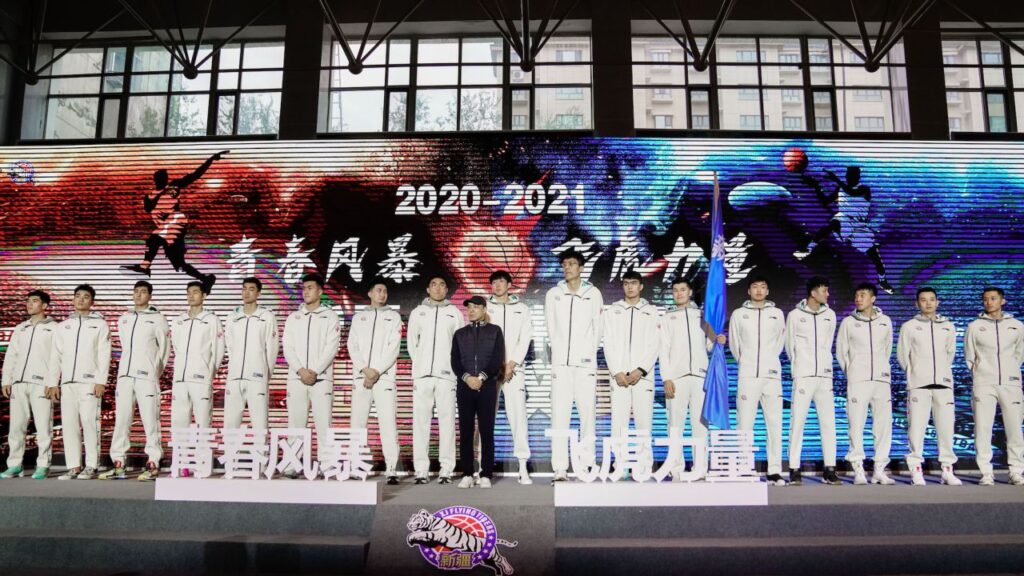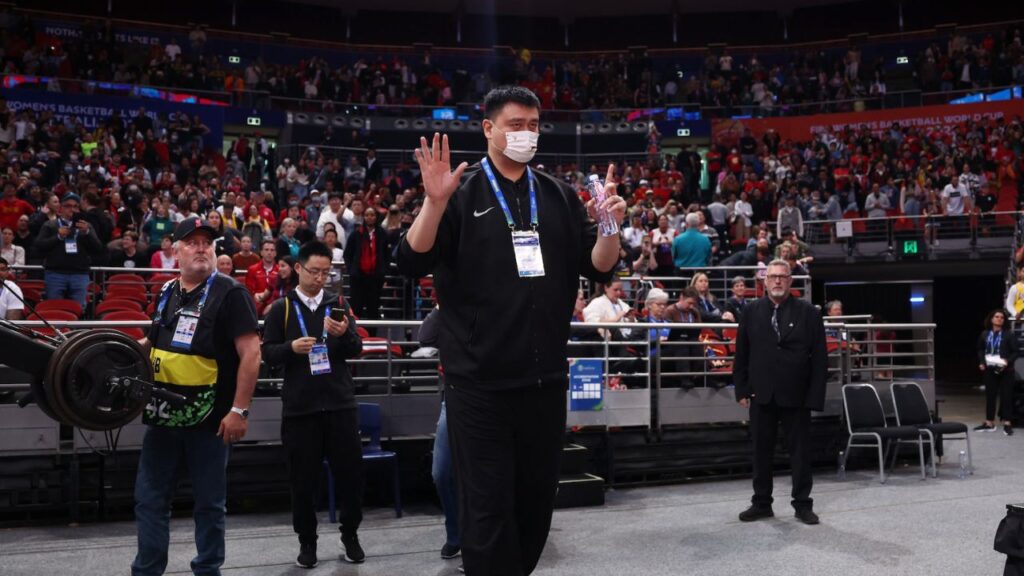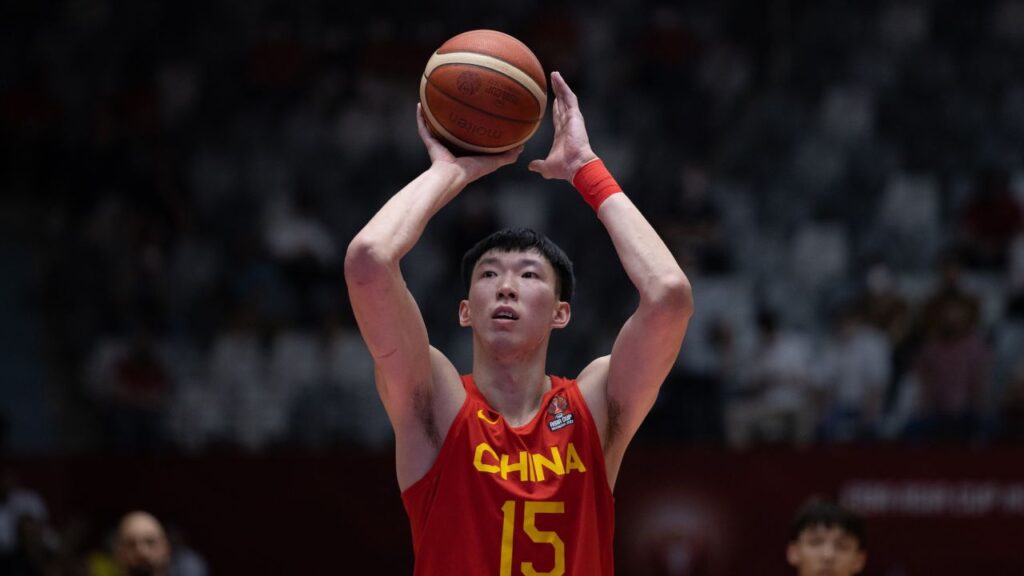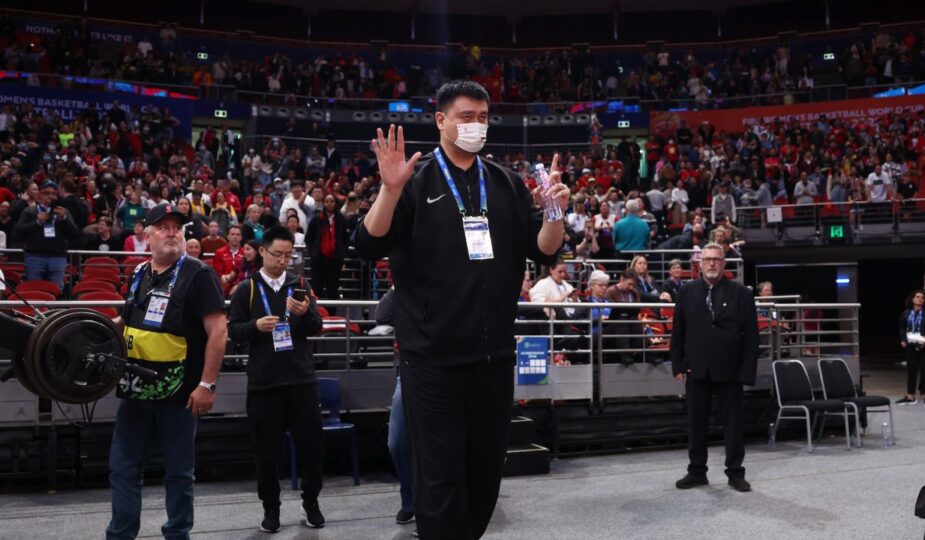
The return of China’s top basketball league to its normal season format following years of Covid disruptions has been marred in controversy after an abrupt no-show from one of its former championship-winning teams amid accusations of mistreatment by its star player.
The squabble has sparked a headache for Chinese Basketball Association (CBA) boss – and former NBA star – Yao Ming and is the latest public spat to engulf a major league.
The Xinjiang Guanghui Flying Tigers on Tuesday announced its withdrawal from the CBA after the league slapped it with a one-year suspension from acquiring and registering new players.
Guanghui, which is based in China’s western Xinjiang region, was slated to join other teams on Wednesday for the first matches after a mid-season break.
But in a tersely-worded a statement this week the team accused the league of being “full of chaos” and publicly rebuked Yao’s leadership.
At the heart of the fallout between Guanghui and the league is China national team star Zhou Qi, who is himself now publicly feuding with his own team.
Following an internal investigation, the CBA deemed Guanghui to have committed “registration violations” in the signing of Zhou in February.
This included transferring business operations without formal approval, and not being in accordance with the league’s hiring and salary regulations over the last three seasons.

The result of that investigation has since ignited a full-blown rift between Zhou and his team.
Most explosive are his accusations of bullying by team manager Guo Jian and club president Hou Wei, who according to Zhou went back on their word and hindered him from participating in NBA events in the US.
He provided photos and screenshots of documents supposedly backing up all of his claims.
“The two chairmans, Guo Jian and Hou Wei, and the management, have bullied me and lied to me for many years. I couldn’t bear it. I still couldn’t decide my own future as an adult in 2023,” Zhou wrote in a lengthy post on Chinese social media platform Weibo.
CNN has reached out to the team for comment.
Zhou has long been touted as Yao’s successor as a generational talent given his towering seven-foot-one (216 centimeters) height and previous experience playing with NBA team Houston Rockets — the same team that Yao was drafted to in 2002.
This would have been Zhou’s third stint with the Flying Tigers, having played between 2014-2017 and 2019-2021.
The saga has sparked heavy interest on China’s social media, where fans have flocked to discuss how Yao would react to the scandal and theories on who is ultimately to blame.
“There are no winners from this” and “the biggest victims are the fans” were among the most-liked comments. More angry users have rounded on Yao and described the furore as a “nuclear explosion in the basketball world”.
CNN has reached out to the CBA for comment.

Basketball commands a huge following in China primarily thanks to Yao’s Hall of Fame career in the NBA.
NBA viewership last year nearly returned to the levels seen before Chinese broadcasters’ 16-month blackout in 2019, according to Reuters. That is an estimated 500 to 800 million viewers through the season.
The CBA, though comparatively less popular, did see pre-Covid audience increases since Yao took charge in 2017.
In its statement Guanghui argues that the CBA “made serious mistakes in its unreasonable and absurd ‘punishment’”.
“After careful consideration, (Guanghui) has solemnly decided to: stop playing this season; and quit the CBA,” it said.
The team then took aim at Yao and the CBA of mismanagement, and Zhou for allegedly repeatedly discrediting the team.
“Since 2017, Yao Ming has held the position of both chairman of the Association and the League. The management of each are intertwined and confused, and the basketball industry is full of chaos,” Guanghui said.
Even after retirement Yao has remained one of China’s most recognisable international faces, acting as a prominent ambassador for sports and fronting a number of charitable causes including campaigns against the ivory trade and consuming shark fins.
Commenting on the Flying Tiger’s withdrawal, Yao told the state-run China National Radio on Wednesday that the Xinjiang club had made “huge contributions” to Chinese basketball in the past 20 years.
“We respect its decision and express regret,” Yao said. “Our top priority now is to bring the league and the games back to the fans.”
Zhou also responded to Guanhui’s broadside with in a lengthy statement of his own on Weibo, calling the revelations “fake news.”
“I admire the ‘creativity’ of (Guanghui) regarding the violations. Sadly, it has been unable to turn around on its road of deception. It’s gone further downhill”.
He concluded that the CBA’s penalty on Xinjiang “is fair and objective”.
Xinjiang, alongside then-All Star Zhou, won their first and only CBA Championship in 2017.
Guanghui’s withdrawal comes one week after soccer team Xinjiang Tianshan Leopard FC withdrew from China’s League One division after dissolving.
The next most popular sport after basketball, Chinese soccer is reeling from its own post-Covid financial difficulties as well as a crackdown on corruption at the highest administrative levels.
A total of six clubs from its marquee Chinese Super League withdrew – and folded – during the pandemic, with dozens more across all divisions.
Many of those who remain are struggling to pay the salaries of players and staff – some even filing appeals to world governing body FIFA.
Meanwhile, a former national team head coach, former national team director, and former Chinese Football Association secretary-general are under investigation by China’s Central Commission for Discipline Inspection for suspected “serious violations of party discipline and the law”.

